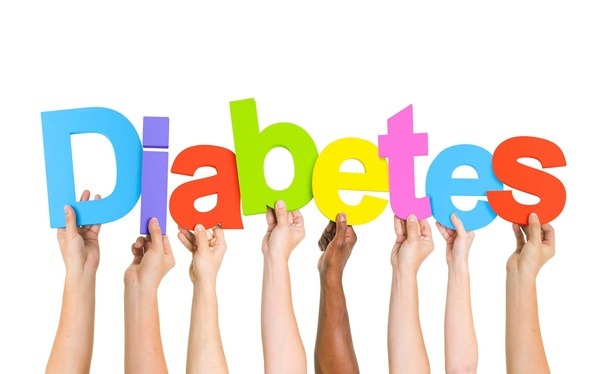Lean diabetes, often overshadowed by its more prevalent counterparts like Type 1 and Type 2 diabetes, presents unique challenges for those diagnosed with it. Unlike other forms of diabetes where weight can be a contributing factor, lean diabetes affects individuals who are of normal or below-normal weight, complicating both diagnosis and treatment. This guide aims to shed light on lean diabetes treatment, offering insights into effective options and lifestyle adjustments that can help manage the condition.
Contents
Why Do Diabetics Become Lean?
 Diabetics may become lean or lose weight for several reasons, and it’s important to understand the underlying mechanisms, especially since diabetes is typically associated with weight gain or obesity. Here’s why some diabetics might become lean or experience weight loss:
Diabetics may become lean or lose weight for several reasons, and it’s important to understand the underlying mechanisms, especially since diabetes is typically associated with weight gain or obesity. Here’s why some diabetics might become lean or experience weight loss:
- Insufficient Insulin Action: In diabetes, the body either doesn’t produce enough insulin (Type 1 diabetes) or can’t use insulin effectively (Type 2 diabetes). When insulin action is impaired, glucose can’t enter cells as effectively, leading to high blood sugar levels. Instead of being used as energy, the glucose is excreted in the urine.
- Energy Loss Through Urine: Since the glucose obtained from food isn’t efficiently utilized for energy due to lack of insulin resistance, it’s excreted through urine. This means that the body loses a significant amount of potential energy despite eating, leading to weight loss.
- Fat Stores and Muscle Breakdown: To compensate for the lack of glucose available for energy, the body starts breaking down fat stores and muscle tissue to use as alternative energy sources. This breakdown of body tissues can lead to unintended weight loss and a leaner physique.
- Diabetic Ketoacidosis (DKA): Particularly in Type 1 diabetes, but in some cases of Type 2, the body may start breaking down fats at a high rate. And, leading to the accumulation of ketones in the blood (a condition known as ketoacidosis). DKA is a serious condition that often results in rapid weight loss.
- Infections: Diabetes can weaken the immune system, making the body more susceptible to infections. Some infections can cause decreased appetite or increased energy expenditure, contributing to weight loss.
It’s crucial for diabetics experiencing significant weight loss or who are naturally lean to consult with healthcare providers. Managing diabetes effectively requires a careful balance of lifestyle adjustments.
What Are Some Lean Diabetes Treatment Options?
Treatment for lean diabetes, which generally refers to individuals with diabetes who are normal or underweight, involves a multifaceted approach. The primary goal is to manage blood sugar levels while preventing weight loss or promoting healthy weight gain. Here are some key medical approaches to treating lean diabetes:
Insulin Therapy
For individuals, especially those with Type 1 diabetes or lean Type 2 diabetes who do not produce enough insulin, insulin therapy is essential. Insulin must be administered through injections or an insulin pump to help glucose enter cells and reduce blood sugar levels. The dosage and type of insulin are carefully determined to match the individual’s needs, eating habits, and lifestyle.
Oral Medications
Some patients with lean Type 2 diabetes may benefit from oral medications that help improve insulin sensitivity or stimulate the pancreas to release more insulin. These medications can help manage blood sugar levels without the direct use of insulin. However, the choice of medication must consider the potential for weight loss as a side effect.
GLP-1 Receptor Agonists
GLP-1 receptor agonists are injectable drugs that mimic the incretin hormones the body usually produces after eating. These drugs slow down digestion, prevent blood sugar spikes, and may promote a slight weight gain or stabilize weight by reducing appetite and increasing satiety.
DPP-4 Inhibitors
DPP-4 inhibitors work by blocking the action of the enzyme dipeptidyl peptidase 4, which leads to an increase in incretin hormones, thereby increasing insulin production in response to meals and decreasing the amount of glucose produced by the liver. These medications are less likely to cause weight loss and can be an option for lean individuals.
Regular Monitoring and Adjustments
Frequent monitoring of blood glucose levels is vital for individuals with lean diabetes. This data allows healthcare providers to adjust treatment plans, medications, and dietary recommendations to ensure optimal blood sugar control while addressing weight management concerns.
In lean diabetes treatment, it’s crucial to work closely with a healthcare team, including endocrinologists, dietitians, and diabetes educators, to create a personalized treatment plan. This team approach helps address the unique challenges of managing diabetes in lean individuals, ensuring both blood sugar control and healthy weight management.
What Are Some Lifestyle Approaches For Lean Diabetes Treatment?
 Lifestyle approaches play a crucial role in managing lean diabetes, emphasizing the importance of comprehensive strategies that include diet, physical activity, and overall health management. Here are some key lifestyle approaches for treating lean diabetes:
Lifestyle approaches play a crucial role in managing lean diabetes, emphasizing the importance of comprehensive strategies that include diet, physical activity, and overall health management. Here are some key lifestyle approaches for treating lean diabetes:
Nutritional Management
A balanced diet plays a pivotal role in managing lean diabetes. Incorporating a variety of nutrients, such as fiber-rich fruits and vegetables, whole grains, lean proteins, and healthy fats, can help stabilize blood sugar levels and maintain overall health. Carbohydrate counting and management are crucial, as carbohydrates have the most significant impact on blood glucose levels. Understanding which foods contain carbohydrates and the effect they have on blood sugar can aid in better meal planning and blood sugar control. Additionally, portion control and timing of meals are important to avoid blood sugar spikes.
Physical Activity
Regular exercise is beneficial for everyone, including those with lean diabetes. It can increase insulin sensitivity, meaning the body can use glucose more efficiently for energy. A mix of aerobic exercises, such as walking or swimming, and strength training can have the best overall health benefits. However, it’s important to plan physical activity to avoid hypoglycemia, especially for those on insulin or certain diabetes medications. Consulting with healthcare providers can help tailor an exercise plan that is safe and effective.
Weight Management
For individuals with lean diabetes, the focus should be on maintaining a healthy weight rather than losing it. This involves understanding and balancing caloric intake with the amount of energy expended through exercise and daily activities. Maintaining muscle mass and preventing unnecessary weight loss is crucial. Hence, requiring a diet sufficient in calories and nutrients.
Stress Management
Stress can have a significant impact on blood glucose control. High levels of stress hormones can lead to elevated blood sugar levels. Engaging in stress-reduction techniques such as mindfulness, deep breathing exercises, yoga, or hobbies can help manage stress effectively. Ensuring adequate and quality sleep is also important, as sleep deprivation can affect insulin sensitivity and blood sugar control.
Regular Monitoring
Keeping a close eye on blood sugar levels is essential for managing diabetes. Regular monitoring can provide valuable feedback on how well the current management plan is working and indicate when adjustments are needed. It also helps to identify patterns in blood sugar fluctuations due to diet, activity, and stress. Regular health check-ups, including monitoring for potential complications of diabetes, are important for adjusting treatment plans as necessary and preventing long-term health issues.
Education and Support
 Educating oneself about diabetes and its impact on the body empowers individuals to make informed decisions about their health. This can include understanding how different foods affect blood sugar levels, the importance of exercise, and the impact of stress and sleep on diabetes management. Support from healthcare providers, as well as peer support groups, can offer valuable advice, share experiences, and provide emotional support, making it easier to manage the condition.
Educating oneself about diabetes and its impact on the body empowers individuals to make informed decisions about their health. This can include understanding how different foods affect blood sugar levels, the importance of exercise, and the impact of stress and sleep on diabetes management. Support from healthcare providers, as well as peer support groups, can offer valuable advice, share experiences, and provide emotional support, making it easier to manage the condition.
Implementing these lifestyle changes can be challenging, but with the right support and a tailored plan, individuals with lean diabetes can manage their condition effectively, leading to a healthier and more balanced life.
Conclusion
Managing lean diabetes effectively requires a blend of medical treatment and lifestyle modifications. By focusing on a balanced diet, regular physical activity, maintaining a healthy weight, managing stress, monitoring blood sugar levels, and seeking education and support, individuals can take significant steps toward controlling their condition. Although it might seem overwhelming at first, making these changes with the guidance of professionals can lead to a healthier life.
Remember, small steps can lead to big improvements in managing this unique form of diabetes. Do you want to get rid of diabetes? Join our online diabetes treatment program and reverse Diabetes naturally through lifestyle changes such as a Personalized Diet plan, Exercise, Yoga, dieticians, and health coaches.

